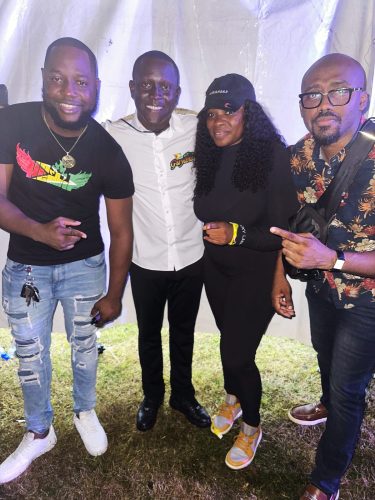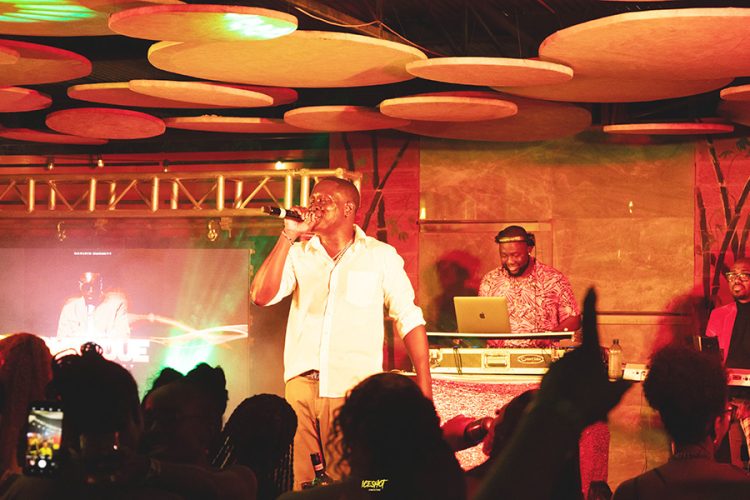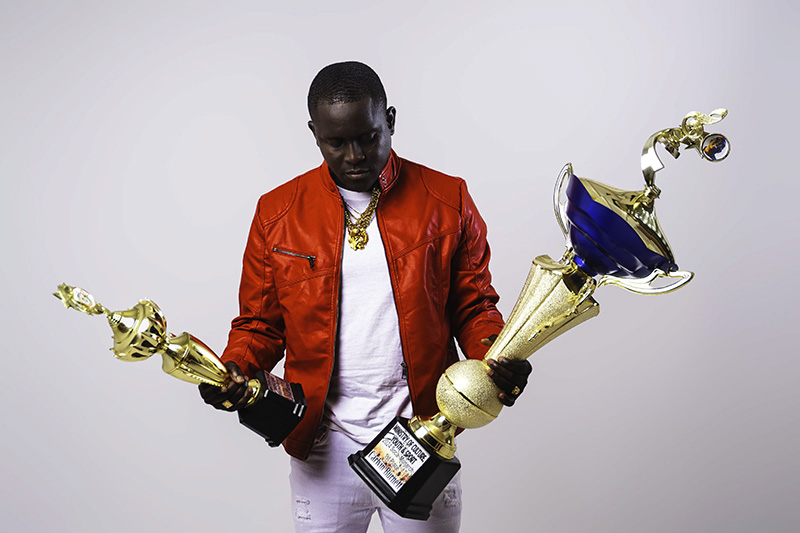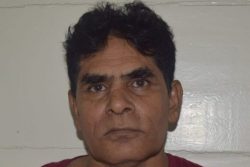By Khamisi Slowe
“Tired, but I’m good, man. This is the life that I live; tired, but with the energy to go,” Carlvin Burnette says with a chuckle, setting the tone for a lively and candid conversation. The energy in his voice is unmistakable, despite the exhaustion that comes with having a rising music career.
For those just tuning into Burnette’s journey, he introduces himself simply: “Carlvin Adrian Burnette. And yeah, it’s Carlvin—with a ‘V’. I’ve had enough ticket mishaps with misspellings to last a lifetime!” he laughs, recalling moments when travel plans went sideways due to that error.
Hailing from New Amsterdam, Berbice, Burnette paints a picture of a boy torn between dreams and expectations. “Growing up in Berbice, the big goals were always to be a doctor, lawyer, or policeman. Desk jobs, you know? I loved science. I was really into medicine, but music just kept calling me back,” he says. From singing in church choirs and playing drums to even preaching, music was always in the background, patiently waiting for its moment.

“Music was on the back burner, but it had this way of creeping up on me,” he shares. Eventually, it wasn’t a choice; it was destiny.
Burnette’s recent win at the Dancehall Monarch competition has placed him firmly in the spotlight. But was this always the plan? “I wanted to do Dancehall Monarch since last year. The idea was to win both Soca and Dancehall in one year. It was on the table, but the team and I decided to focus on one thing at a time,” he explains.
Winning Soca Monarch first was a calculated move, and once that was conquered, the team set its sights on Dancehall. “We didn’t go back to defend the Soca crown because we had nothing left to prove there. So, we went after Dancehall and we won that too,” he says proudly.
But what’s next for the artist who refuses to be boxed in? “I’m all about versatility. Look at Rihanna, she went from R&B to pop. Lil Wayne dabbled in punk rock. Why should I stick to just one genre?” he asks rhetorically. Burnette hints at his future plans, which might include entering the Chutney Monarch next.
“You’re serious about this?” I ask.
“Yeah, man. Why not? You can’t put Carlvin in a box,” he declares.
Burnette rewinds to the week leading up to the Dancehall Monarch competition. “Let me take you back a step further,” he begins, recounting a pivotal moment that altered the course of his performance.
“I did a show in January, on the 25th, called ‘Overdue.’ That was my first major show. Everything else had been charity events. After that, I was left thinking, ‘What’s next?’ I did the show, saw the turnout, and heard the remarks. I locked myself away for two weeks to figure it out,” he says.

During that time, Burnette had no preparation for the upcoming competition. “We had a song, but no dance choreography, no presentation, nothing,” he admits. His team — Chanel and Joey — called him up, expressing concern. “They asked if I really wanted to do this. They were ready to pull out, and I almost gave in, but then something happened. I saw a Facebook live where someone kept calling my name, saying I wasn’t good enough, calling me D-class talent. That lit a fire in me,” he says.
Determined to prove the naysayers wrong, Burnette gathered his team. “I called up the dancers and choreographers. I told them we’re going to win this thing with a big enough margin that no one can question it. And we went to work. It was like a well-oiled machine,” he shares, with pride.
The final night wasn’t without its challenges. “We hit some major glitches with the screen. It wouldn’t come on at first, then it kept cutting off. But I told the team, ‘Cut the screen. I’m just going to rely on my performance,’” he recalls.
While winning crowns is rewarding, Burnette has bigger dreams that transcend competitions. “I want to be the first Guyanese artist to bring home a Grammy. That’s the goal,” he states, with a determined glint in his eyes.

He’s passionate about pushing Guyana’s music scene onto the global stage. “When people talk about Caribbean music, Guyana often gets left out. They forget we have legends like Eddy Grant and Natural Black. It’s time we change that narrative,” he emphasizes.
But he’s also realistic about the challenges. “If we’re talking about a structured music industry — no, we don’t have that yet. But is the music budding? Absolutely. We’ve got the talent; now, we need the platform,” he explains.
Burnette doesn’t shy away from discussing the struggles. “There were times I wanted to disappear. The disappointments, the financial struggles, they can wear you down. But then you remember why you started in the first place,” he says.
His journey is filled with moments of self-doubt but also immense pride. “It’s easy for people to forget that we’re humans behind the music. The same feelings apply to us all,” he reflects.
So, what does the future hold for Carlvin Burnette? More music, more genres. “I’m exploring everything. I don’t want to be limited. Dancehall, Soca, Chutney, you name it. I’m coming for it,” he says with a laugh.
One thing is certain: you can’t put Carlvin Burnette in a box. And that’s exactly how he likes it.
“I’m just a country boy with big dreams—and I’m not done yet,” he concludes.









